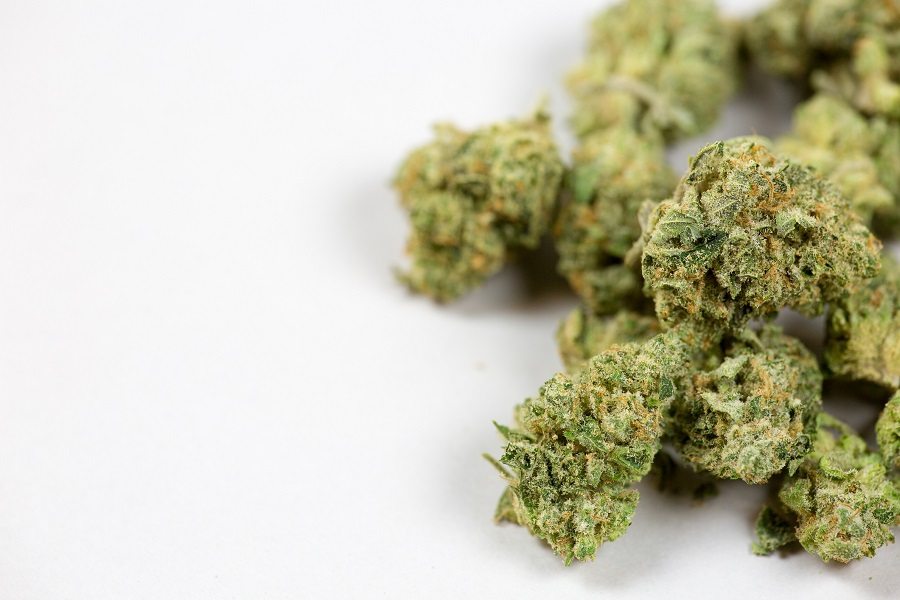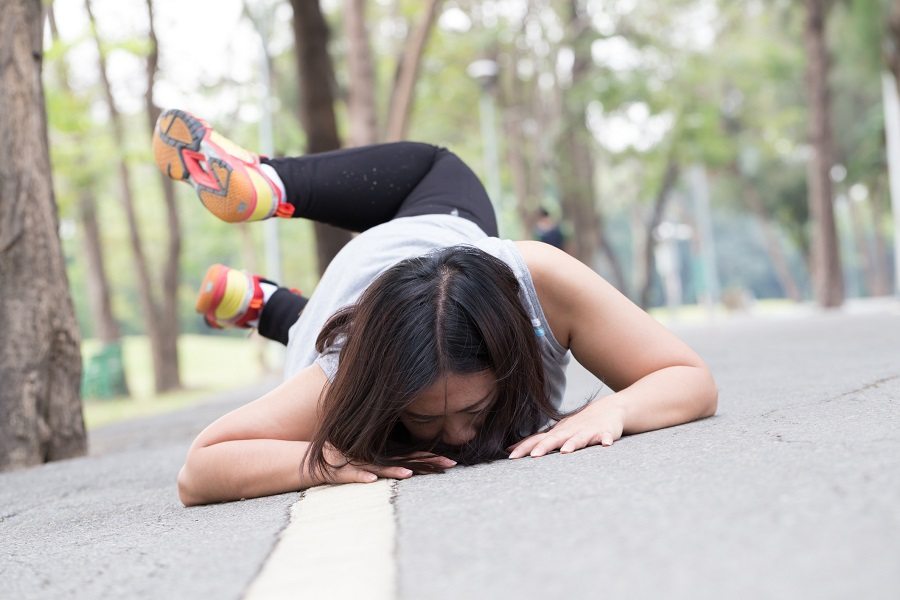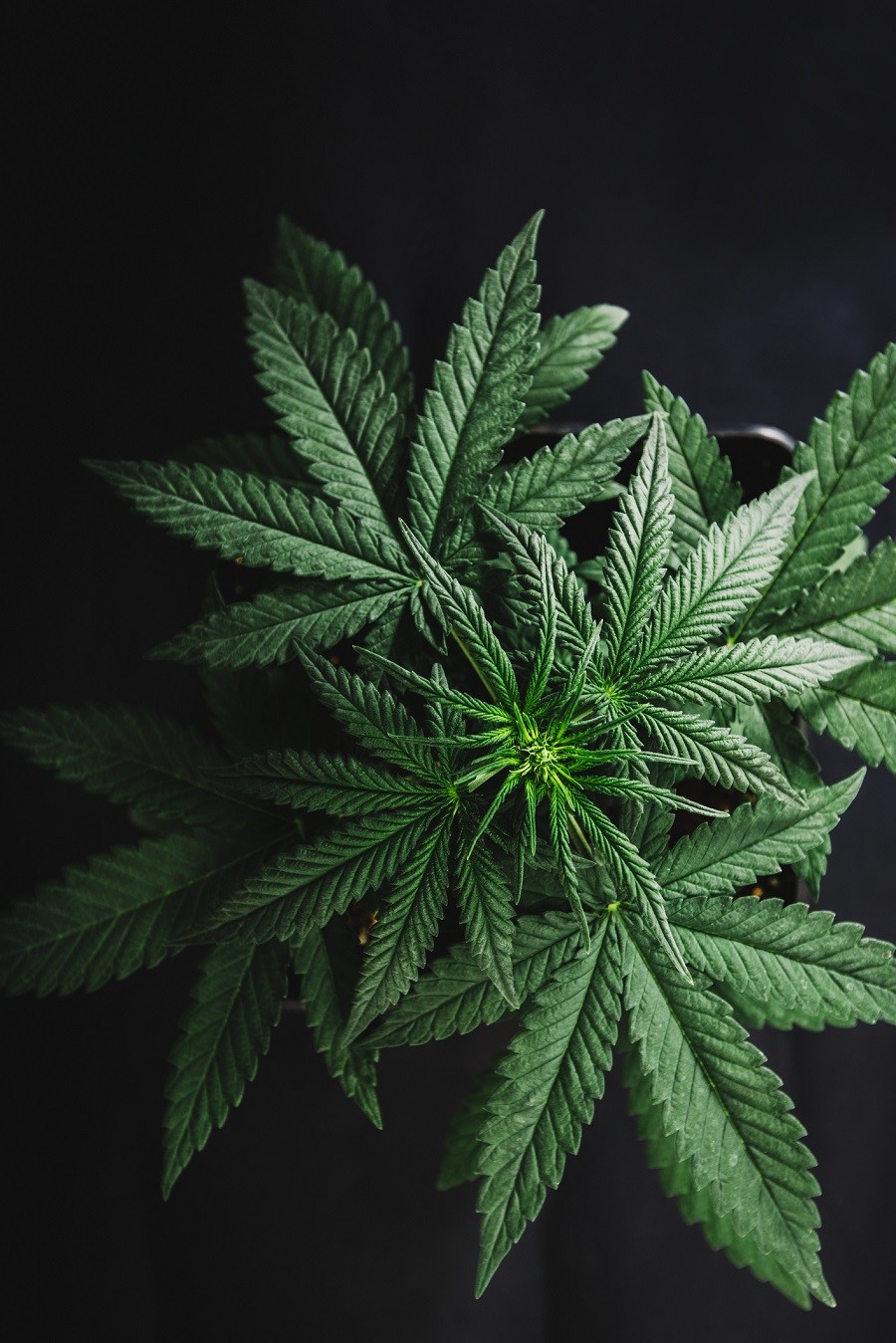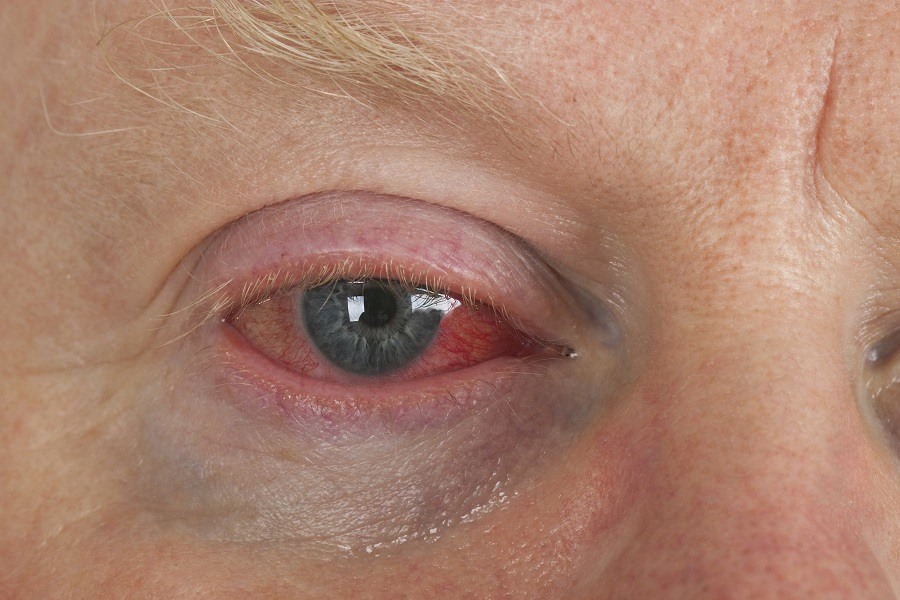Julia Mullaney
As marijuana
continues to increase in popularity, more people might be wondering:
What actually happens when you’re high? Your body’s reaction with
tetrahydrocannabinol (known as THC; this is the chemical responsible for
marijuana’s effects) explains why you feel and look a certain way when
you use marijuana. And all it starts with the brain.
THC reacts with the brain’s cannabinoid receptors

The brain is impacted. | Israel_Patterson/iStock/Getty Images
Your body contains cannabinoid receptors throughout it that are part
of its endocannabinoid system. This system helps regulate physiological
processes in the body, such as appetite, pain sensation, mood, and
memory. When you inhale marijuana
— or that first edible kicks in — the THC in the drug instantly reacts
with the body’s receptors. This reaction alters your physiological
processes, which helps explain a lot of the things you feel while high.
Next: Here’s why some people get clumsier during a high.
Loss of balance is related to THC’s effect on the brain

Don’t go for a jog while high. | Comzeal/iStock/Getty Images
Some people who use marijuana experience clumsiness during a high.
This happens because THC affects the areas of the brain that are
responsible for balance: The cerebellum and basal ganglia.
These areas regulate balance, coordination, posture, and reaction time.
Adding THC into the mix makes it harder to walk a straight line and
might cause you to be clumsier than usual.
Next: That extremely happy feeling has an explanation.
That sense of ‘euphoria’ comes from a rush of dopamine

You may feel great! | Rawpixel/iStock/Getty Images
When THC and the brain meet, there is an instant release of dopamine.
Dopamine affects your emotions and your feelings of happiness. If a
rush of dopamine is released, like when you’re high, you’ll instantly
feel very happy. This creates the “euphoric” mood that marijuana is
often responsible for. While that release of dopamine feels great, some
studies have shown that too much dopamine released at once can make it
harder for you to feel happy about other things when you’re not using
marijuana.
Next: Some people feel more anxious with marijuana use than others — here’s why.
Those anxious thoughts depend on your marijuana strain

But you may feel anxious. | Yarygn/iStock/Getty Images
Some people have reported feeling extremely anxious while high.
Although the connection between marijuana and anxiety is not well
understood, some experts think it has to do with the particular strain
of marijuana. There are two strains,
cannabis sativa and cannabis indica, and one might be more responsible
than the other. Sativas supposedly stimulate the mind more than indicas
because of their amounts of THC. This could make them induce anxiety
rather than suppress it.
Next: Here’s why high people might have bloodshot eyes.
Marijuana expands the blood vessels

This is why people get bloodshot eyes. | Lightstar59/iStock/Getty Images
Have you ever noticed that high people often have bloodshot eyes?
That is because of marijuana’s effect on blood vessels. The drug causes blood vessels to expand,
which is most noticeable in the eyes. The heart beats faster, which
increases blood flow around the body. Both of these combine to give a
high person bloodshot eyes. Plus, some experts suggest that the smoke
from marijuana can exacerbate the red eyes.
Next: That ‘dry mouth’ feeling really does happen.
Cannabinoid receptors are responsible for dry mouth

You may crave a tall glass of water. | iStock.com/Pinkypills
There are cannabinoid receptors on your tongue just like in the
brain. When marijuana enters your system, those receptors are affected
in the same way as the ones throughout the rest of your body.
The
activated receptors can restrict the production of saliva, giving
marijuana users a “dry mouth” feeling when marijuana is used. Plus,
inhaling the drug can add to the dry mouth. The cannabinoid receptors on
the tongue have also been found to alter your sense of taste while high.
Next: Here’s why you get the munchies.
Experts have found two reasons why you might get the munchies

You may find yourself hungrier than normal. | Ferlistockphoto/iStock/Getty Images
Smoking marijuana almost always goes hand in hand with a case of the
munchies. Experts suggest that the main cause is THC’s reaction with the
hypothalamus. The hypothalamus is the part of the brain responsible for
appetite and thirst, among other things. One recent study
showed that marijuana might “flip a switch” on a brain circuit that is
usually responsible for suppressing appetites.
More research would need
to be done to determine if that’s the case.
Next: Here’s what happens to your heart during a high.
Your heart rate increases by 20 to 50 beats per minute while high

If you feel your heart you may be surprised. | Hywards/iStock/Getty Images
Your heart rate increases when you use marijuana. This ties directly
to the expanded blood vessels in your eyes. As the heart rate increases,
more blood flows through the body. Mixing marijuana with other drugs or
stimulants can cause the heart rate to increase even more. However, the
heart rate only increases for a fraction off the high, so you can
expect it to drop after about 20 minutes.









No comments:
Post a Comment